Guest Lecture Highlights: Genome Editing as a Breakthrough in Modern Agricultural Innovation
The Undergraduate Program of Agroecotechnology, Faculty of Agriculture, Udayana University, successfully held a guest lecture featuring renowned plant biotechnology expert, Prof. Dr. Endang Semiarti, M.S., M.Sc., from Gadjah Mada University. The lecture, titled “The Role of Genome Editing in Modern Agricultural Innovation”, took place on Thursday, September 11, 2025, from 1:00 PM to 3:00 PM Central Indonesia Time (WITA), at the Senate Meeting Room, 2nd Floor of the Agrocomplex Building, Sudirman Campus, Denpasar. The event was officially opened by Dr. Widhianthini, S.P., M.Si., representing the Dean of the Faculty of Agriculture, and Dr. Ida Ayu Putri Darmawati, S.P., M.Si. as the second speaker. Serving as moderator was Ni Nyoman Sista Jaya Santi, S.P., M.Biotek., with participants including undergraduate to doctoral students from the Faculty of Agriculture.
In her presentation, Prof. Endang emphasized that genome editing is a revolutionary advancement in the field of plant breeding. She clarified that genome editing is not classified as genetic engineering (GMO) since it does not involve inserting foreign genes. Instead, it enables precise genetic modifications to achieve desirable plant traits. Since the emergence of the precision breeding era in 2019, genome editing has significantly transformed the landscape of agricultural innovation.
Orchids were presented as a model plant for genome editing applications due to their vast morphological and physiological diversity, as well as their high economic and cultural value. Orchids also have an established in vitro culture system and rich genomic data, making them ideal candidates for biotechnology-based crop improvement. Through CRISPR-Cas9 technology, several key genes in orchids related to flowering, scent, flower coloration, and leaf variation have been successfully edited. Research findings have shown that editing genes such as PDS3 and VAR2 produces variegated orchids with high ornamental and commercial value.
Prof. Endang also introduced the use of various bioinformatics tools, including CRISPR RGEN Tools and CHOPCHOP, which are essential for designing and analyzing gene editing results. A live demonstration was given on designing sgRNA for the VAR2 gene using Arabidopsis as a model, showcasing how genome editing techniques are practically implemented in laboratory settings.
The discussion session was highly interactive, with questions from both lecturers and students. Topics included the challenges of genetic transformation using tissue culture, strategies to avoid off-target effects, and how to verify trait inheritance—especially for seed-propagated plants. Prof. Endang stressed the importance of molecular analysis to confirm the edited gene's location and ensure stable trait inheritance in subsequent plant generations.
The event concluded with a closing statement from the moderator, expressing appreciation to the speaker and all participants. A group photo session marked the end of the lecture, which successfully enriched the academic community's knowledge on the opportunities and challenges of modern agricultural biotechnology.
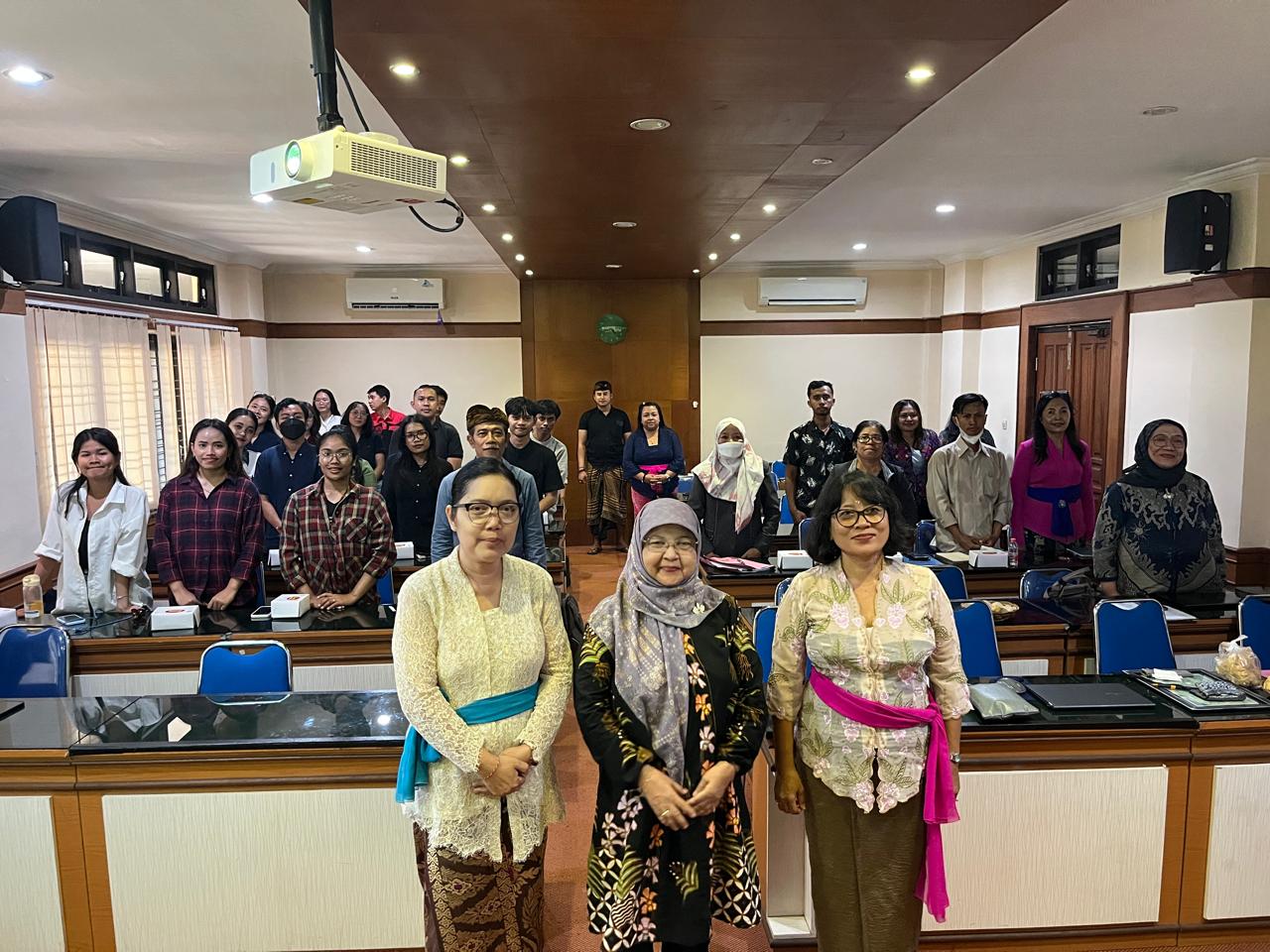
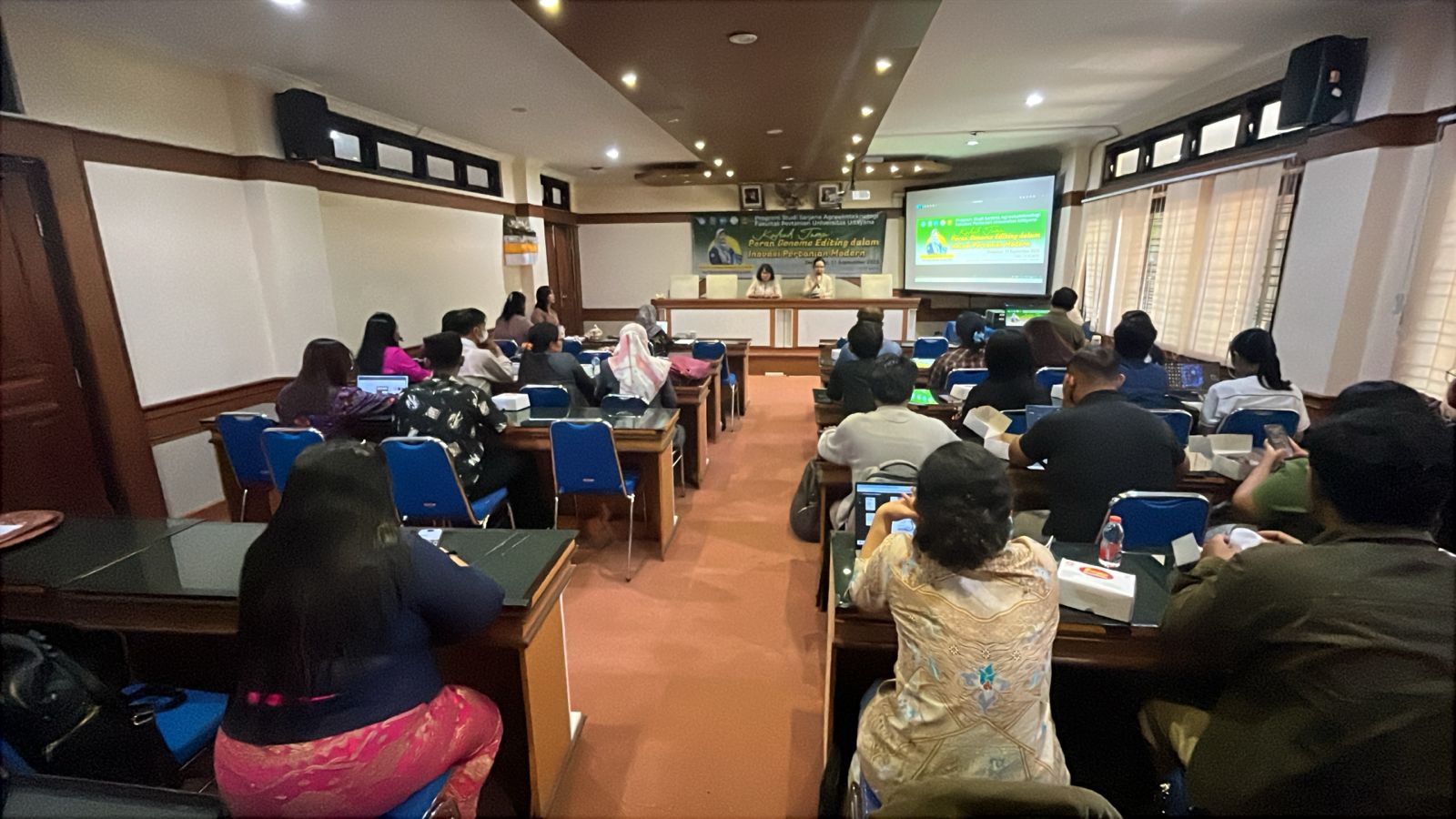
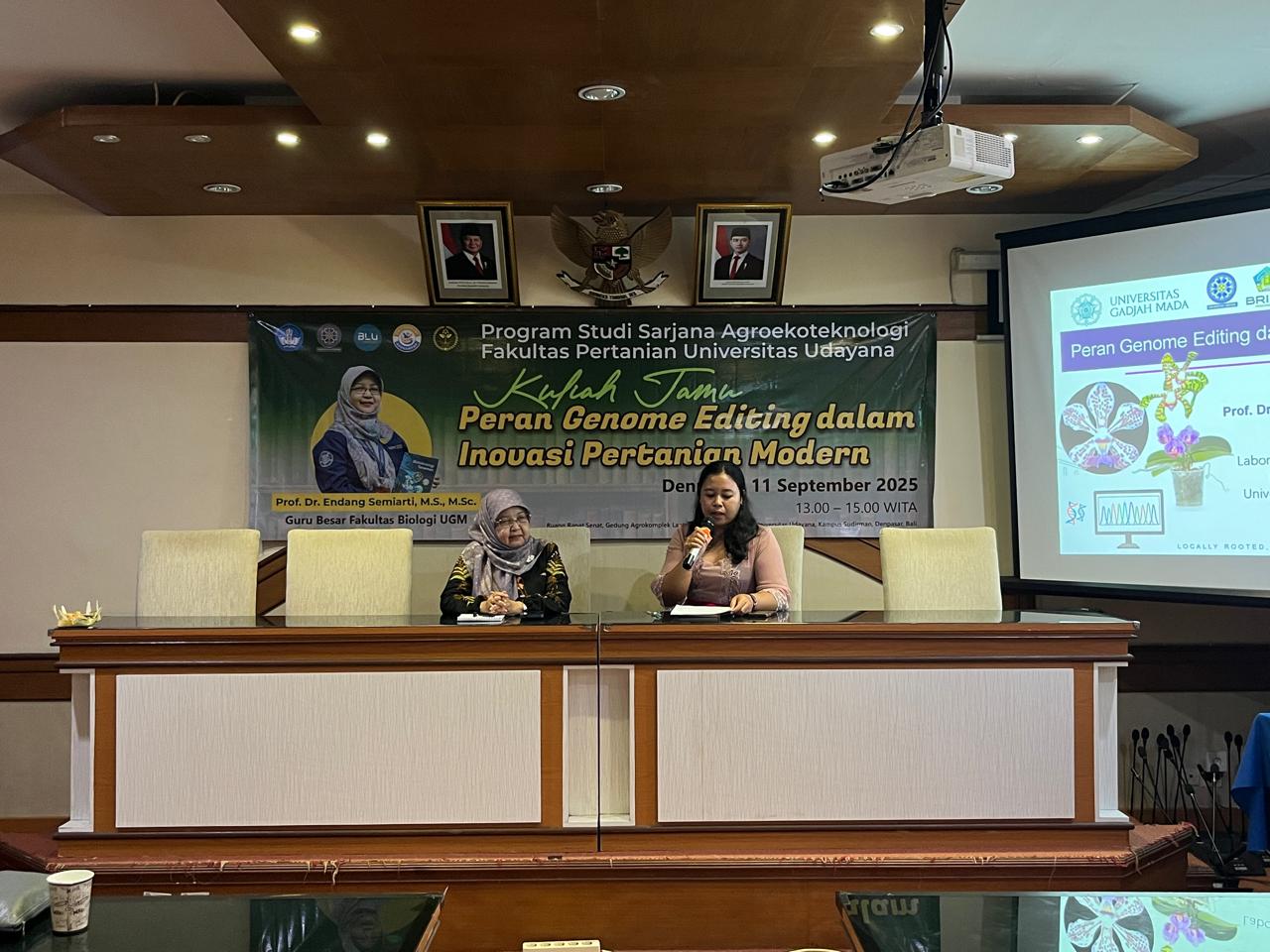
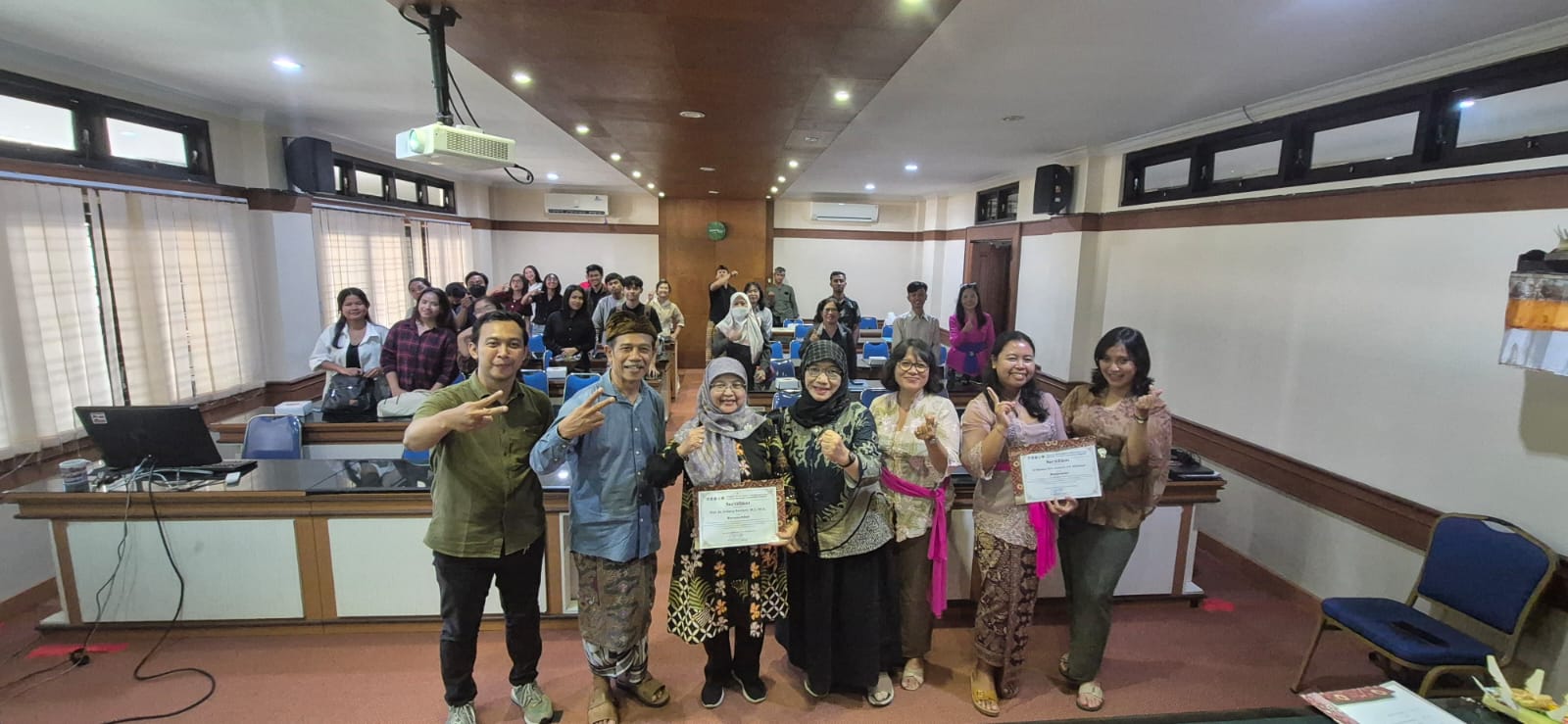
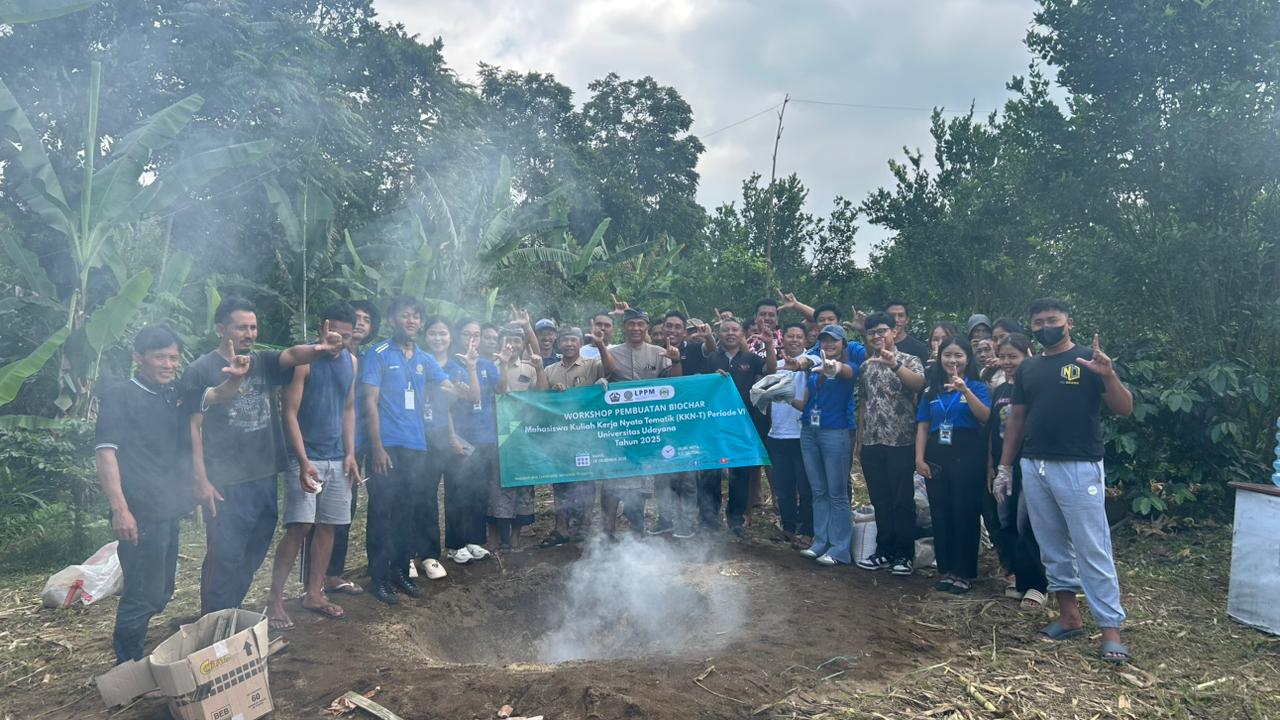
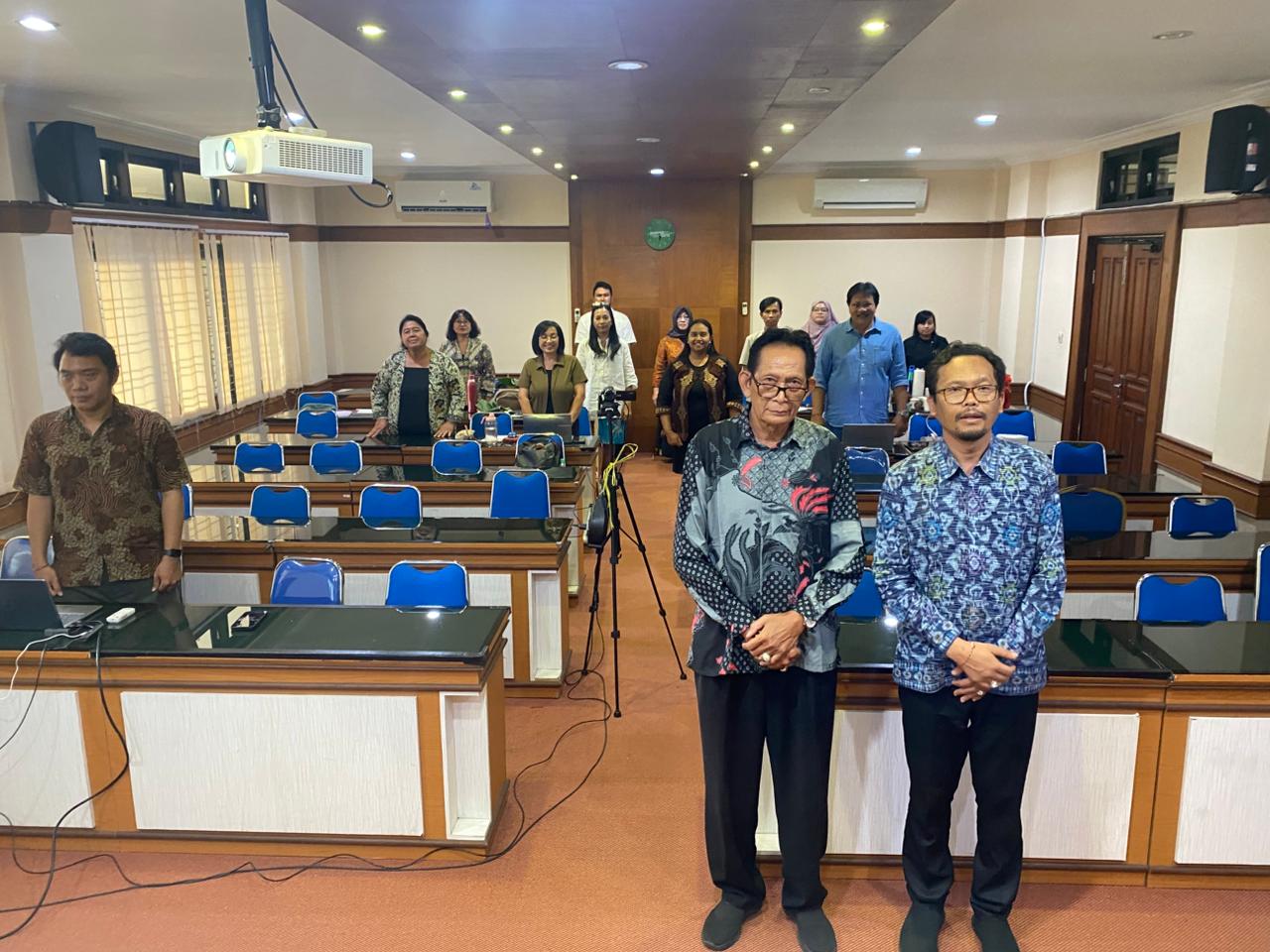
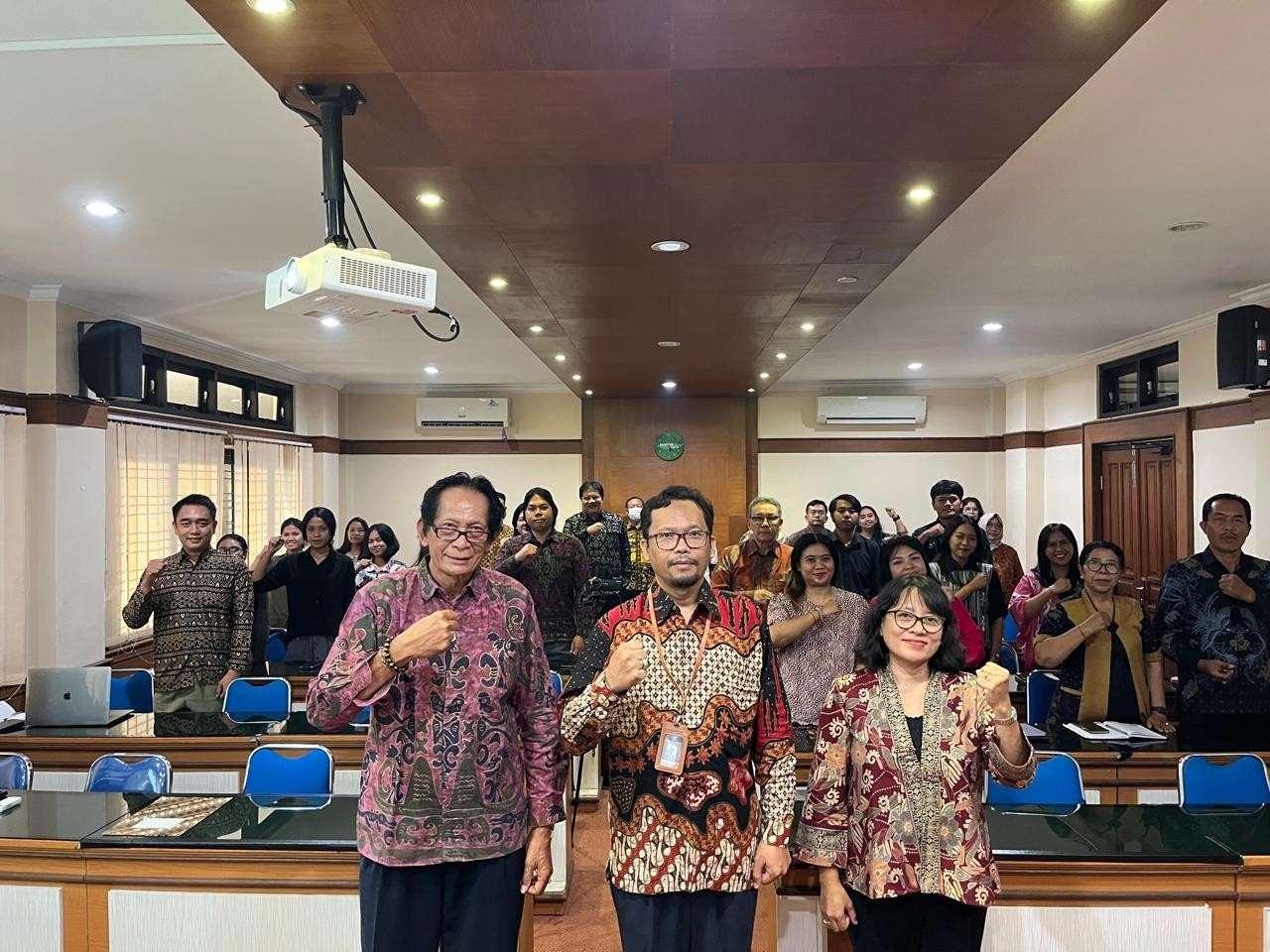
UDAYANA UNIVERSITY